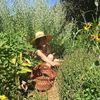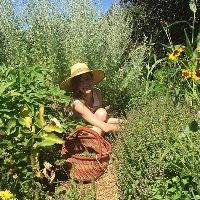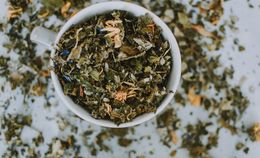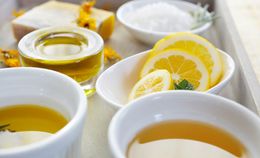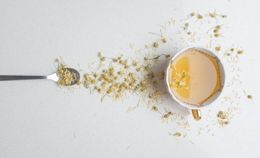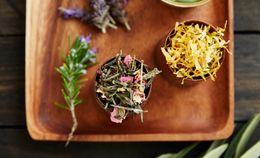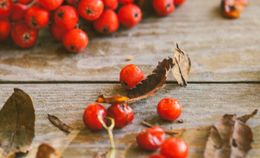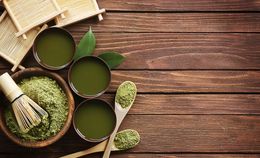Ever have one of those moments where you’re put on the spot but draw a mental blank? When these short-lived “brain farts” start to become a more pervasive and longer-lasting mental cloud, this is considered “brain fog." Brain fog is not a diagnosable condition, but rather a symptom and usually the result of a deeper rooted issue. Keeping that in mind, here are some herbal therapeutics to help support the clearance of brain fog and keep your mind sharp as a tack.

Promote Mental Clarity
There are a handful of herbs out there that have been used for hundreds of years (if not longer) to help lift the cloud known as brain fog and promote mental clarity. This class of herbs is generally focused around increasing cerebral circulation, supporting healthy brain chemistry, and promoting sharper memory and cognitive awareness.
Some herbs I use to support mental clarity are gotu kola (Centella asiatica), ginkgo (Ginkgo biloba), ashwagandha (Withania somnifera), rhodiola (Rhodiola rosea), bacopa (Bacopa monnieri), and rosemary (Rosmarinus officinalis). I often suggest taking these herbs in a tincture-based formula for ease and convenience since depending on your state of brain fog, preparing a tea or more complex herbal preparation might feel like too much in the moment you need it.
Get Things Circulating
A common culprit of brain fog is poor circulation to the brain and throughout the body in general. Many people describe brain fog as feeling mentally “stuck” or as if something is “blocking” them from thinking. And in some cases, circulation-wise, this is true!
Adding a circulatory stimulant herb to your brain fog formula is a great idea to help clear stagnation and promote clarity of mind. A few of my favorite herbs to support healthy circulation are ginger (Zingiber officinale), rosemary, mint (Mentha spp.), tulsi (Ocimum sanctum), cayenne (Capsicum annuum), and gotu kola.
Nutrition = Key
Although this article is focused around herbal therapeutics for brain fog, not nutritional, drawing from herbs to promote optimal nutrition and nutrient absorption is key for a healthy, clear mind. Basic nutritional deficiencies are often at the root of minor brain fog symptoms and certain nutrient-rich herbs can help us stay replete.
Although herbs cannot correct severe deficiencies in many categories, it can help fill in “nutritional gaps” as I like to call them. A few common, nutritive-rich herbs you can draw from are oatstraw (Avena sativa), red clover (Trifolium pratense), nettle (Urtica dioica), raspberry leaf (Rubus idaeus), and alfalfa (Medicago farfara).
A good way to get in all the vitamins and minerals that nutritive herbs have to offer is by making an overnight infusion (aka tea). Simply steep your herbs in room temperature or cool water before bed, then strain in the morning and sip throughout the day. Nutritive herbs tend to be more neutral in flavor and contain fewer tannins so the infusion will not be too bitter, even though you are letting the herbs steep for approximately 8 hours.
Balance Your BS
While this also applies to all of the life bulls*** you may have swept under the rug, in this case, we are talking about your blood sugar. Although this might sound a little off track (what does blood sugar have to do with brain fog??), it is actually one of the most essential pieces for helping clear brain fog.
Ever experience brain fog as one of your afternoon “crash” symptoms? This could largely be connecting with your blood sugar dipping after lunchtime (or right before if you skipped breakfast and are only running on a pastry and coffee).
Along with other vital methods for keeping your blood sugar balanced involving nutritional and lifestyle changes, there are a handful of herbs that can also help keep our blood sugar levels regulated both short and long-term. Some of my favorite herbs to incorporate to promote blood sugar stabilization are cinnamon (Cinnamomum spp.), tulsi, turmeric (Curcuma longa), and blueberry leaf (Vaccinium spp.).
Essential Reminder
Depending on the origin and cause of your brain fog, these herbs might only provide temporary relief, so be sure to work on addressing the root issue underlying your brain fog with your healthcare professional and clinical herbalist as well.
Curious to learn more about brain fog and different herbal-based strategies to support and clear the cloud? Comment below or direct message me for more information!
